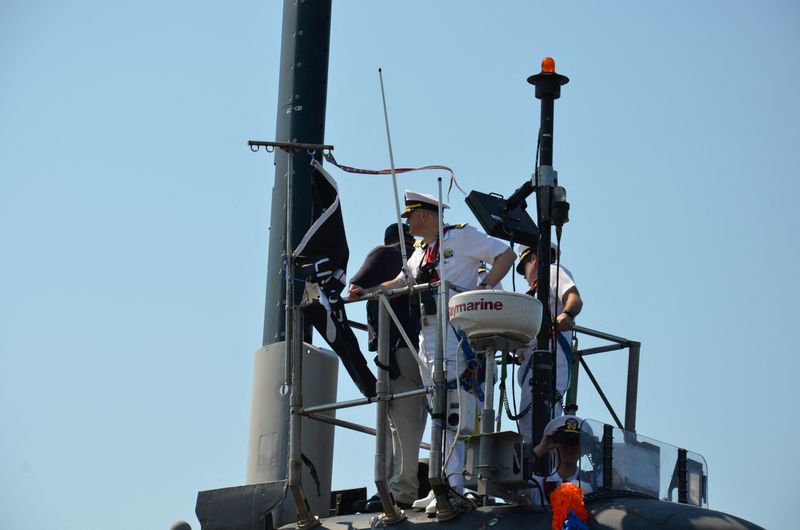(Corrects paragraph 4 to reflect that Michael Hunter was an advisor to Navy SEALs but was not a SEAL)
By Stephen Nellis
SAN FRANCISCO (Reuters) -A startup founded by U.S. Navy veterans aiming to help the U.S. military use artificial intelligence to decipher data gathered by submarines has raised its first round of outside capital.
Washington-based Spear AI specializes in working with what is known as passive acoustic data, which is gathered by listening devices underwater. Its long-term aim is to use AI to help submarine operators understand whether an object heard could be a rain squall, a whale, or a vessel that could be a threat, and to detect where it is and how fast it is moving.
The challenge is that most existing AI tools are trained on data such as words or images that have been painstakingly labeled and organized over years or decades by companies such as Scale AI, which recently signed a $14.8-billion deal with Meta Platforms.
Data from acoustic sensors is different. Spear AI co-founders Michael Hunter, a former analyst who supported Navy SEALs and the Joint Special Operations Command, and John McGunnigle, a former nuclear submarine commander for the U.S. Navy, are building a hardware and software platform that aims to prepare that data for AI algorithms.
The company sells sensors that can be attached to buoys or vessels and a software tool to help label and sort the data gathered by the sensors to make it ready to be put into AI systems. The U.S. Navy this month awarded Spear AI a $6-million contract for its data-labeling tool.
Spear AI, founded in 2021, has been self-funded and has about 40 employees. Hunter, the CEO, said it raised $2.3 million from AI-focused venture firm Cortical Ventures and private equity firm Scare the Bear.
The funding will be used to double the company’s headcount to support its government contracts and commercial business prospects, such as monitoring underwater pipelines and cables. Hunter said Spear AI also aims to sell consulting services, a model similar to defense tech firm Palantir.
“We wanted to build the product and actually get it out the door before the contract came in to get it,” Hunter told Reuters. “The only way you can do that is with private capital.”
(Reporting by Stephen Nellis in San FranciscoEditing by Rod Nickel)

